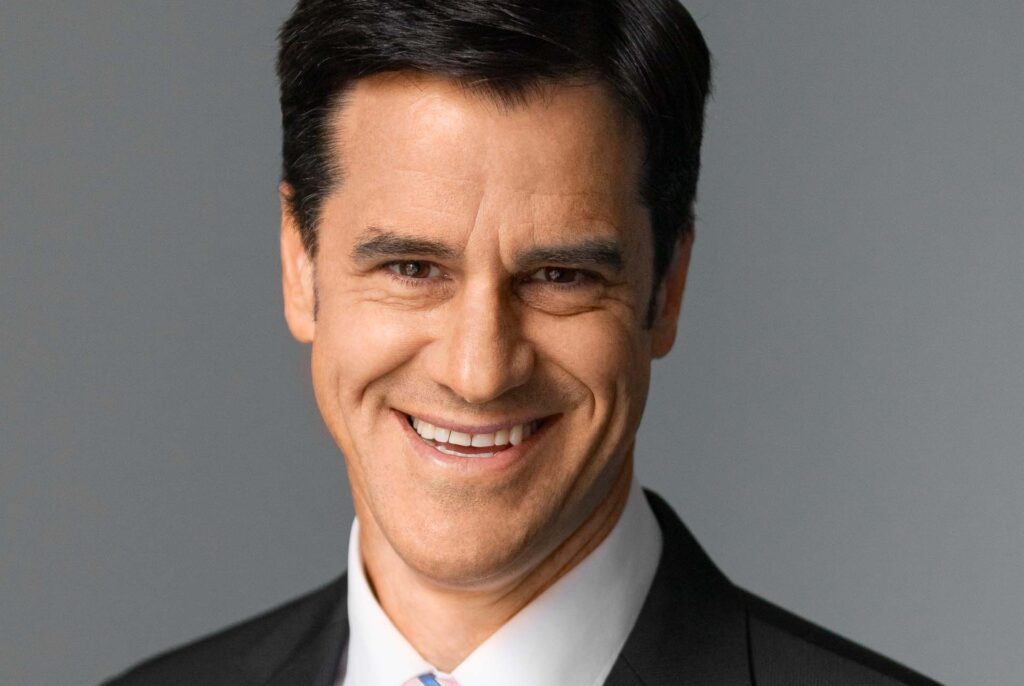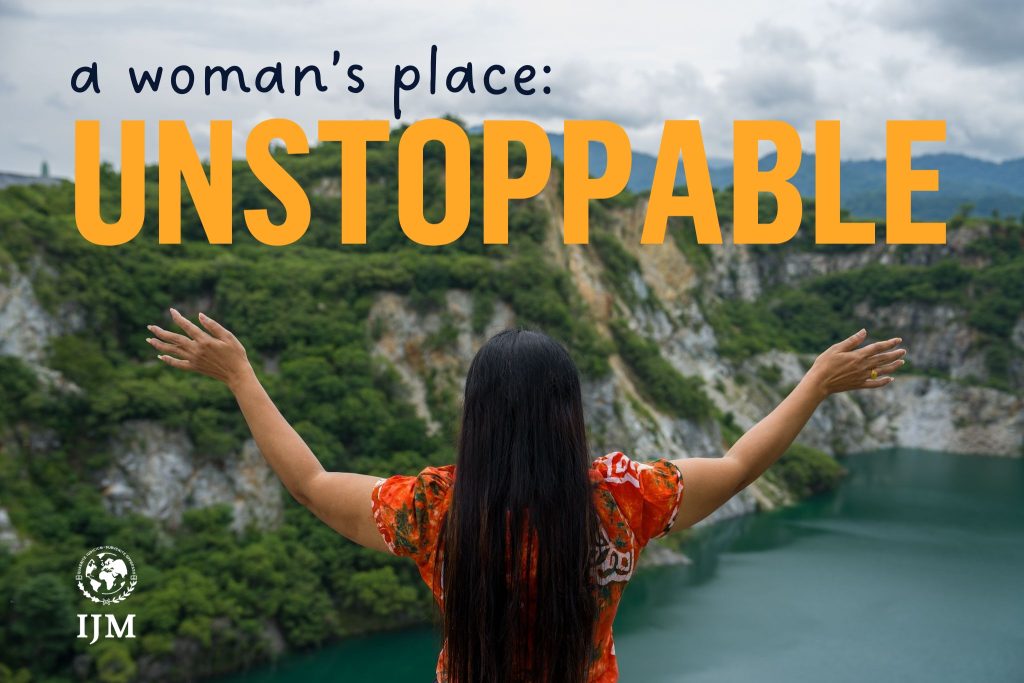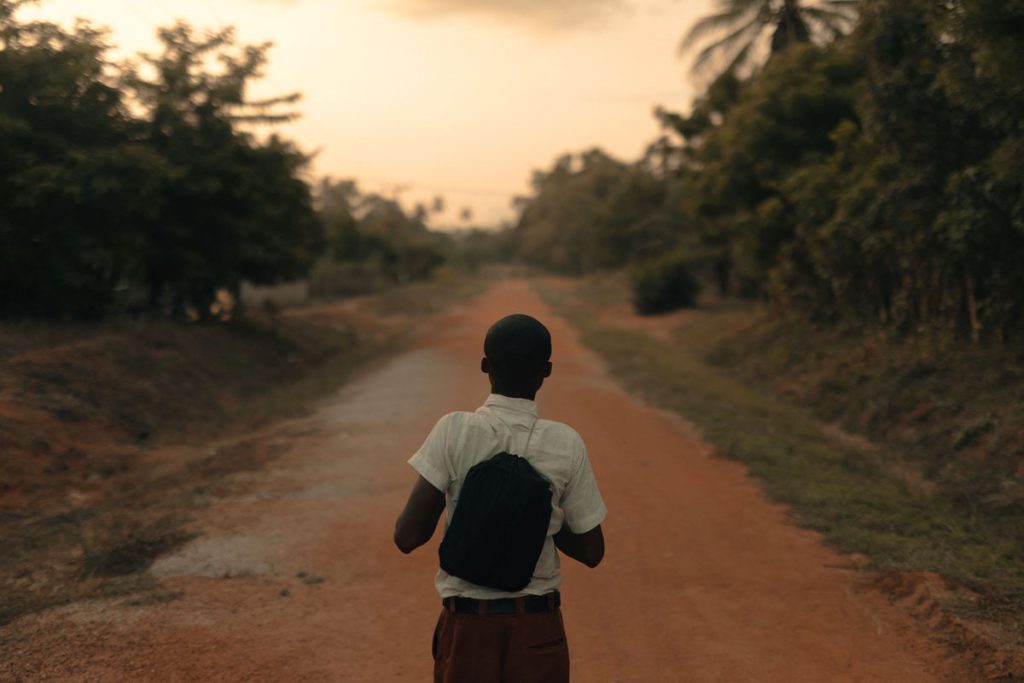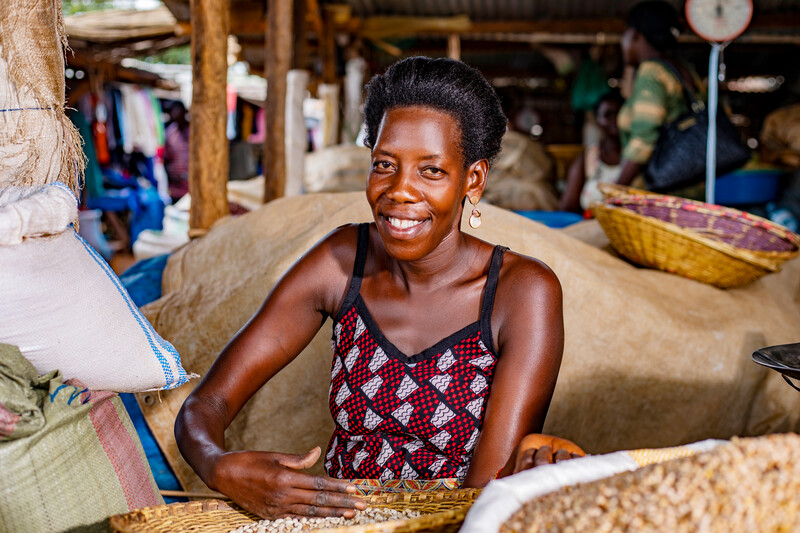
“I am not weak, I am brave. Slavery is happening all around the world, but I have hope. We need more people in the fight to end slavery. Can you stand with me if you want to see an end to slavery?” Joy’s voice reminds us why we are a part of ending modern-day slavery.

We spoke to Mark McCrindle, Founder & Principal of McCrindle Research, exploring the insights and trends in technology and how Australians desire to be change-makers.
Q: Can you tell us a little about the work that you do?
A: My company McCrindle works in the area of social research where we look at the attitudes Australians have, trends that are emerging and perceptions that we have about different issues. This includes looking into generational change, such as demographic studies to, more recently, coping methods during COVID-19. Essentially, we take the pulse of this nation and examine where we’re at and where we’re headed.
Q: You visited an IJM Aftercare partner shelter in the Philippines; can you share with us what the experience was like?
A: It was amazing. In November last year I visited an aftercare facility in Manila. I was well aware of IJM’s work, the prosecution and the rescue operations, but what many people don’t realise is that IJM is involved in aftercare as well. Because the children can’t return to their families where they have been victimised, they need protection and they need their future supported.
The aftercare facility that IJM had built was a compound located in a fantastic bush land environment, where family homes were set up so that these children could have a sense of family, house parents, and community with each other. It was striking to see the number of homes on this particular facility as it shows the need for this aftercare and the scale of the problem.
I also loved that it was in partnership with the organisation Compassion, who provided support in health, education, and spiritual areas. That’s why the partnership and setup of intentional work in the aftercare facility was amazing to witness.
Q: McCrindle looks at data and social trends. Cybersex trafficking of children reveals a very dark side to technology we use every day. What can you tell us about trends in technology and how that can be harnessed for good?
A: The source of this problem is the technology we have, however technology is also how investigators and the criminal justice system defeat this evil and bring perpetrators to justice. This generation of young people are the victims of cybersex trafficking, yet it is this same generation that is most digitally confident. We see it in our research; they are connected and proficient in this technology and use it to be aware of their world.
I read a quote once that says, “The internet is either the greatest curse or the greatest blessing of modern times”. In other words, we’ve always had challenges with new technology, but no one would decry of the benefits the internet provides although it comes with its challenges. It is this generation that is able to redeem and bring the best out of technology. As we can see, recently they have been learning online, it’s expanding their world, and it’s allowing them to connect in this borderless world because of technology. It has such great potential, power, and influence with this digital generation, and I think they will be able to, when well trained, use it for good and transform their own world. They are more globally influential and connected with the awareness of these global social issues because of technology, and that is also shaping them to be able to make a difference in the world.
Q: What do these trends mean for IJM, our supporters and ordinary Australians? Can you tell us about how Australians are engaging with issues of justice?
A: We consistently research Australians and their attitudes towards charities and social needs around the world. We constantly find that Australians are “need responders”, whether it’s a flood, bushfire, or tsunami. Even when it isn’t impacting Australia, Aussies are the first to line up at the bank to donate money and to make a difference in terms of giving or donating when there are needs that are brought to their awareness. That shows the mateship that is a part of the DNA of this nation, highlighting that no-one is self-made and we need each other to thrive. Those values come to the fore in this nation when we can highlight the needs.
Some of the phrases we have here such as “giving others a fair go” make sure that we extend the great blessings that we enjoy in this nation to others who may not be as fortunate as us. Those values resonate strongly in Australians once we’re aware of the need. Since we’re an island continent, Australians tend to look beyond their own borders and travel more than other nations. We have more of a global outlook than for example, the U.S., hence we are more aware and open to making a difference.
In terms of cybersex trafficking of children and slavery, I believe that there is a great opportunity, if we can highlight the needs for Aussies to reach out. Knowing that Australians are also a part of this dark abuse, we can also be a part of the solution of breaking out of modern-day slavery.
Q: How would you encourage Aussies in the work of IJM?
A: Firstly, to everyone who has had some exposure to the great work of IJM, we need to be ambassadors for the work – share the stories, and connections because we trust each other as Australians. By being people who donate and support causes, we become advocates because we’re transferring the trust that we have with a friend to the organisation we know.
Secondly, making the needs known. As I said before, Aussies are generous if we know the need. Sometimes you may hear “we need to look after our own backyard first” with the problems we have in Australia which indeed are present, but let’s share another story, Joy’s story, or what is happening in the Philippines and other countries where Australians and others in Western countries are the perpetrators of abuse. If we share this, we have the ability and responsibility to make a difference. By sharing the need and opportunity to a very well resourced nation, we will find Aussies willing to stand up and make a difference.
This post is based on Just Moments: Liv(e) with …, a series of Instagram Live conversations with experts, focusing on the role of aftercare for survivors of cybersex trafficking. Watch it here.
You can support important work like this by giving to IJM Australia’s Found to Free campaign by 30 June.




